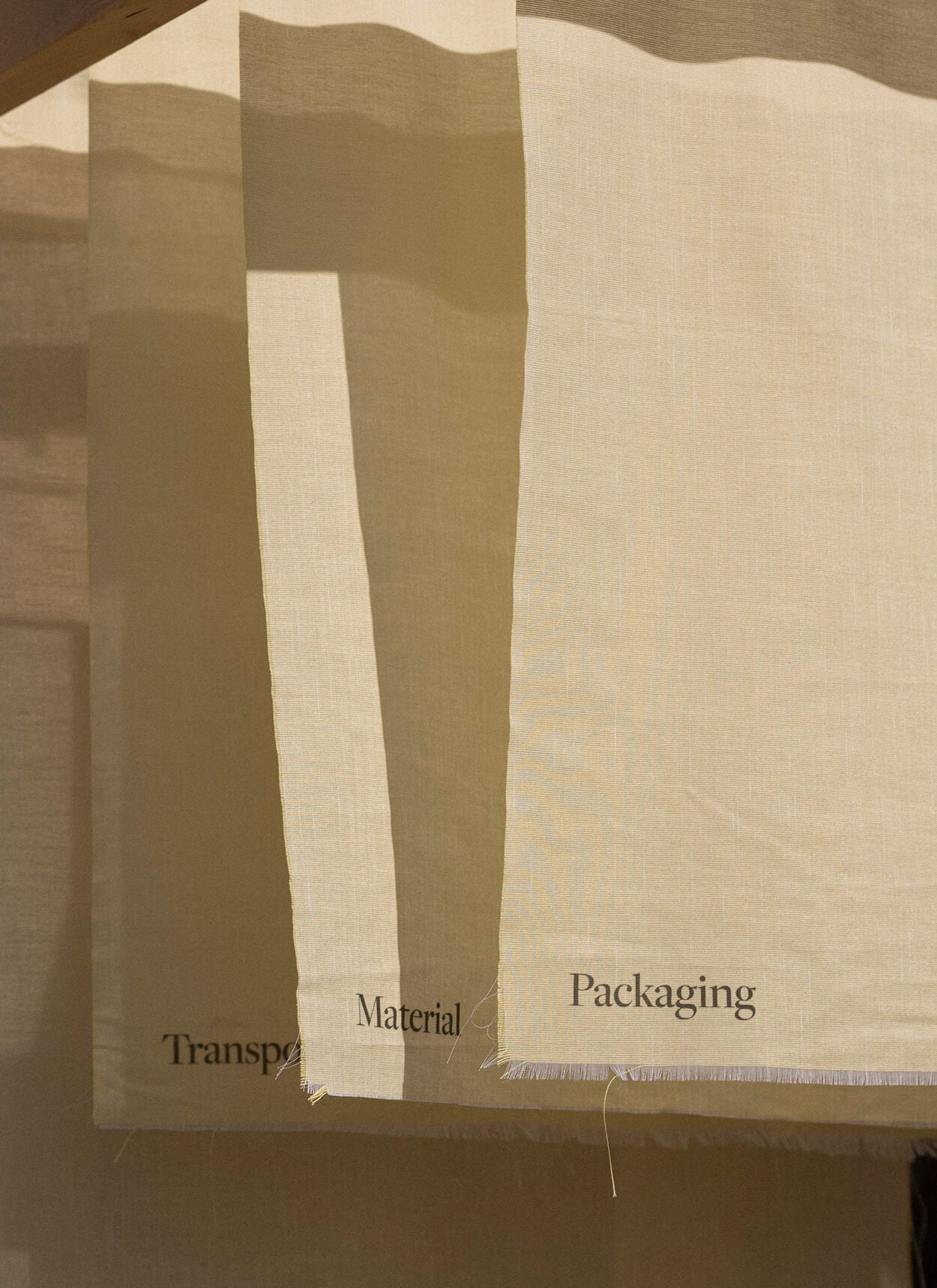Behind the Design
Behind our GOTS production
Behind our GOTS production
The Global Organic Textile Standard, also known as GOTS, is recognized as the world’s leading processing standard for textiles made from certified organically produced raw materials. With strict environmental and social criteria spanning throughout the entire supply chain, products made from GOTS-certified materials, such as organic cotton, are manufactured without the use of hazardous chemicals, protecting biodiversity, farm and factory workers as well as the end consumer.
Ferm Living has been GOTS-certified since 2017 and we have a range of GOTS-certified cotton products within our collection. We work with certifications like GOTS because we are committed to responsible production and want to ensure working conditions in our supply chain are safe and fair, and that our products are responsibly produced and of high quality.
We work with certifications like GOTS because we are committed to responsible production and want to ensure working conditions in our supply chain are safe and fair, and that our products are responsibly produced and of high quality.
From Farm to Fabric
A farmer growing GOTS-certified materials such as cotton, silk, linen or bamboo has a highly restricted list of chemicals that they are allowed to use in their production, protecting both soil and animal welfare. There are also strict requirements when it comes to water usage, which includes the responsible treatment and recycling of wastewater.
We paid a visit to our largest manufacturer of GOTS-certified cotton products in the Tamil Nadu region of Southern India, with whom we have been partners since 2008, so we can take you behind-the-scenes of the process of turning raw organic cotton into beautiful, GOTS-certified textile designs.



Organic raw cotton arrives at the spinning mills in compressed blocks, each weighing 145kg. Then starts the first of many stages of cleaning, in which the cotton is filtered for shells and any foreign materials. The raw cotton is fed through a tube into a machine blowing high-velocity air throughout the cotton, separating the compressed particles from each other, and removing any waste. The cotton is then run through a metal detector and fed through a series of mixing machines to make sure the particles are evenly distributed. This process is repeated, after which the cotton is hand sorted to remove any remaining waste. On average, each 100kg of raw cotton yields 90kg of clean cotton that is ready to be spun into fabric.
The cotton particles are then fed through a carding machine and compressed into a flat sheet, which is cut into strips that resemble coarse threads. These are then feed through a comb-like machine which separates and cleans the fibres, which are mixed together again. This process is repeated, after which they are flattened and carded again to ensure consistency, uniformity and durability. These fibres are spun onto spools, resulting in the cleanest, finest cotton threads. As a final step in the spinning mills, the spools are placed in a UV light room for yet another round of quality control to make sure that they do not contain any dirt or dust.

To create a GOTS-certified product, each participant in the supply chain must be individually GOTS-certified and participate in a yearly third-party audit to make sure that they are living up to the high standards that GOTS have set up.
The spools are then transported to the weaving unit, where the threads are laid out on machines that roll them together into layers, each layer consisting of 7000 fine threads. Another machine inserts strands in the opposing direction, forming a classic warp and weft weaving pattern. This results in the final, raw GOTS fabric. After a last round of quality control in which the fabric is meticulously inspected by hand to make sure that there aren’t any weaving errors or stains, the fabric is ready to be dyed, cut, sewn and crafted into the final design.
A Collaborative Journey
To create a GOTS-certified product, each participant in the supply chain must be individually GOTS-certified and participate in a yearly third-party audit to make sure that they are living up to the high standards that GOTS have set up, spanning from social compliance to water, electricity and chemical usage. Our manufacturing partners in India employ solar panels on the roof of their factory and have implemented a workers transportation scheme that offers safe and secure transportation to and from the workplace, which results in the employment of many women from the local community who previously lacked employment opportunities.
We are proud to be partners and collaborators on this journey to working within a responsible and sustainable mindset from both an environmental and social standpoint. It’s with both determi¬nation and humility that we pursue better and easier ways for our customers to make responsible choices. We are by no means perfect, but we’re doing our part.



A Quick Guide to our Organic Cotton














